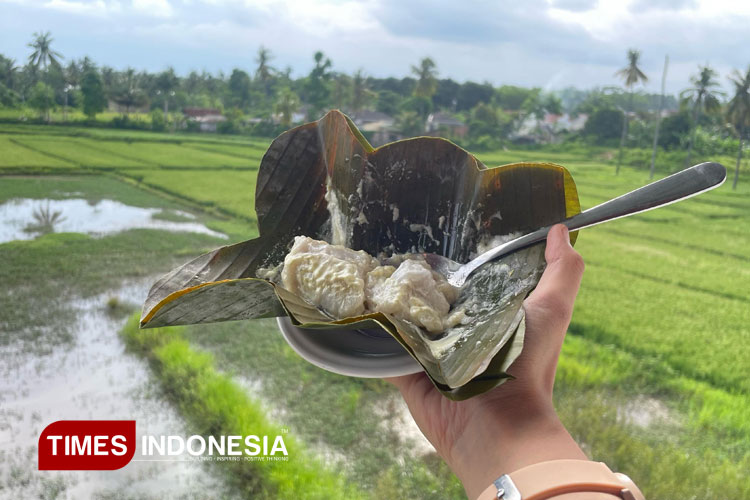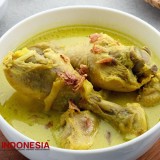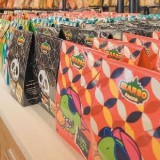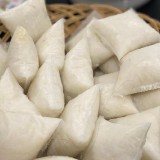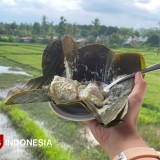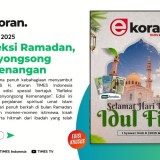TIMES SINGAPORE, JAKARTA – Indonesia boasts a rich culinary heritage filled with diverse traditional snacks, each carrying its own distinct taste and history. Among them, Kue Mentuk is a lesser-known yet fascinating delicacy originating from Banyuwangi, East Java.
This traditional dish blends elements of porridge and the well-loved Javanese snack Nogosari, offering a unique, savory twist rarely found in Indonesian sweets.
Kue Mentuk is made using rice flour and coconut milk, giving it a smooth and slightly sticky consistency. While many traditional Indonesian snacks are sweet, Kue Mentuk stands out due to its predominantly savory flavor, achieved by incorporating seasoned meat at its core.
The filling usually consists of beef or chicken that has been carefully spiced and cooked to enhance its taste. This addition makes Kue Mentuk more substantial and satisfying compared to other traditional treats.
The preparation of Kue Mentuk involves several steps, but the process is relatively straightforward. First, the rice flour mixture is cooked until it reaches a thick, porridge-like texture. It is then spread onto banana leaves, and a portion of spiced meat is placed in the center.
The banana leaf is folded using a technique called ‘dipincuk,’ which secures the filling inside. Finally, the wrapped portions are steamed for several minutes until they are fully cooked and infused with rich flavors.
One of the few artisans keeping this tradition alive is Heny Mulyowati, a 60-year-old resident of Singonegaran, Banyuwangi. She has been making Kue Mentuk since the early 2000s, a skill she inherited from her parents, who were also passionate about preserving traditional recipes.
According to Heny, the type of meat used can vary depending on personal preference. However, she favors beef due to its deeper, more pronounced taste.
Despite its rarity, Kue Mentuk remains a beloved treat, especially during Ramadan. Many Banyuwangi locals prepare it for breaking their fast, appreciating its comforting texture and flavorful filling.
The dish embodies the culinary heritage of the Osing people, a unique ethnic group native to Banyuwangi, who take pride in preserving their traditional foods.
In an era where modern snacks and fast food dominate, maintaining and reviving traditional delicacies like Kue Mentuk is crucial. By supporting local artisans and traditional foods, we contribute to the preservation of Indonesia’s invaluable culinary legacy. (*)
Artikel ini sebelumnya sudah tayang di TIMES Indonesia dengan judul: Kue Mentuk: A Rare Culinary Gem from Banyuwangi
| Writer | : Khodijah Siti |
| Editor | : Khodijah Siti |
